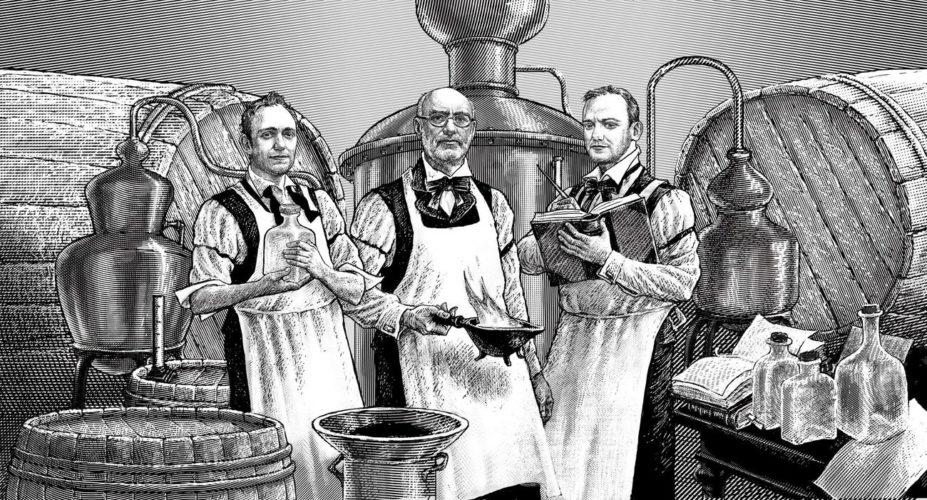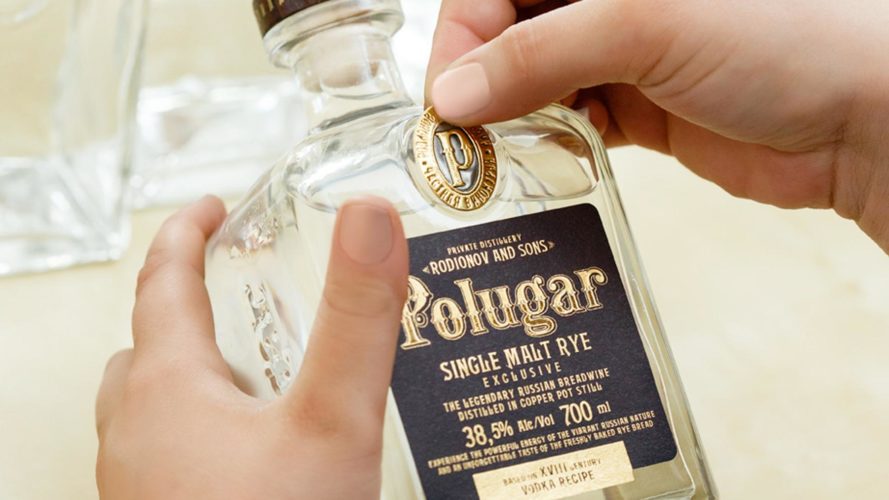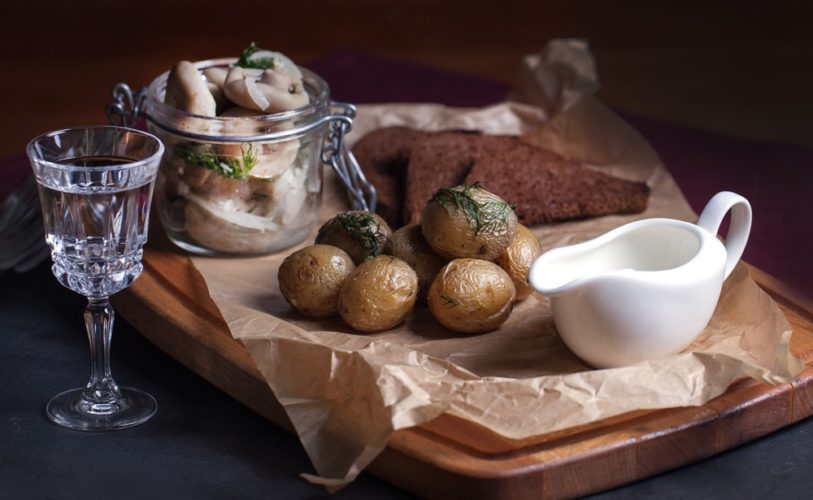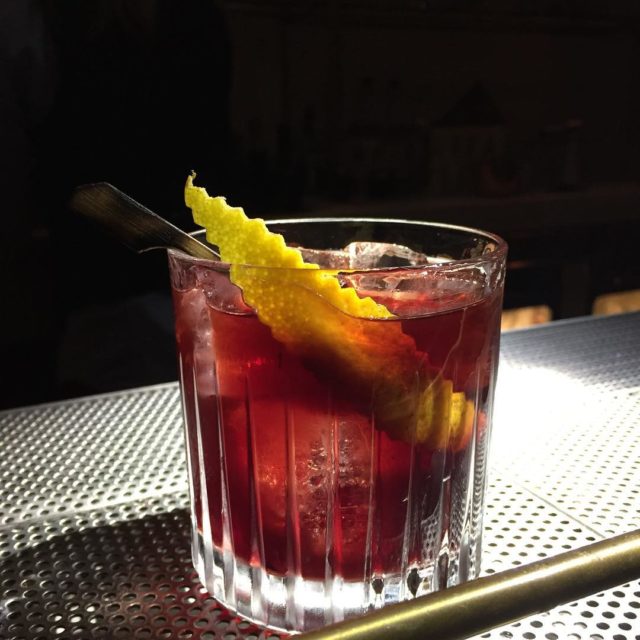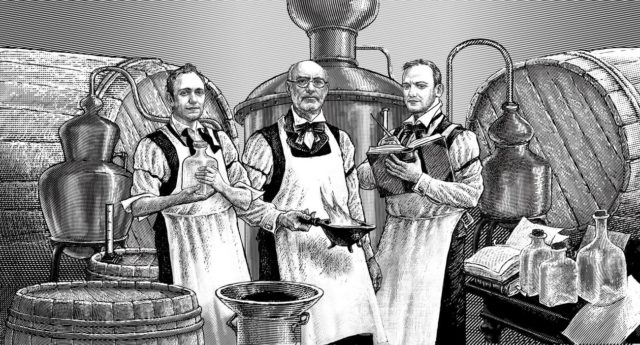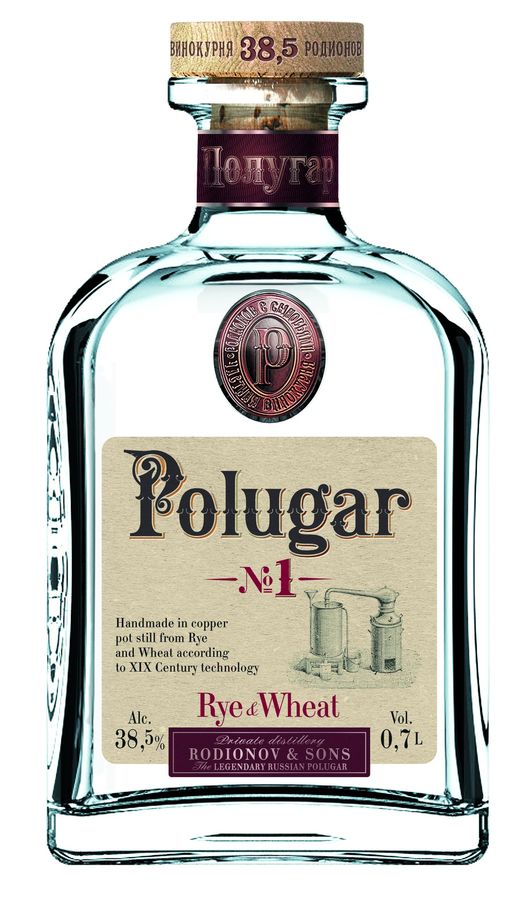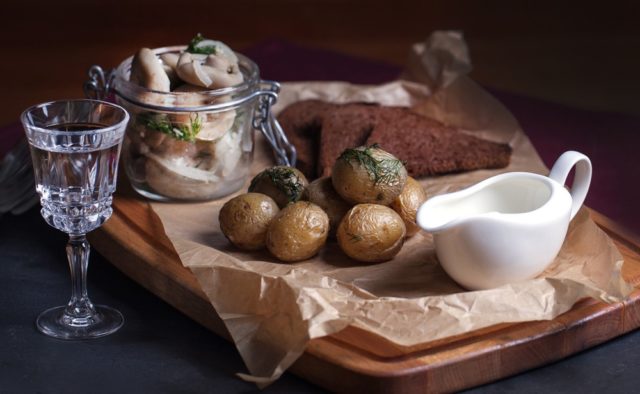Let’s talk Polugar today, Russia’s true spirit legacy.
Alexandra Barstalker•Adventures of the Barstalker
This post is also available in: Greek
Some people ask me which drinks I prefer. It’s not an easy question to answer because it depends mainly on my mood or the food I have eaten. But there are some drinks that stay in my mind and I can always recall their taste: just like a little tattoo on my taste buds. This drink, Polugar, I have met twice in two different countries in two totally different bars. The first time it was at El Copitas in St. Petersburg where Benjamin F. Cavagna and Marco Russo, the brains behind the 1930 Cocktail Bar in Milan, had a guestshift.
Le Borbone is impeccably built using Polugar Cherry, PX Sherry, Campari and Old Tom Gin. By adding a few drops of balsamic vinegar, the bartender gave it some extra Italian individuality and rounded off the drink with a pleasant acidity. This concoction was amazing and I couldn’t resist having another one.
The second time I met the drink was in Athens, where the brand ambassadors for Polugar, Roman Tabakov and Olga Babak, had adopted the recipe. This time I asked for the details, and here is the recipe:
Paradiso 1930
40 ml Polugar Cherry
25 ml Ruby Porto & PX (2:1) you can pour
15 ml Ruby and 10 ml PX
25 ml Campari
5-7 ml (splash) Gin,
2-3 drops balsamic vinegar
Stir directly in a tumbler and serve with orange zest and cocktail cherry.
The Polugar taste dance
With its full body and long finish the drink danced on my palate. The dryness and heavy fruitiness comes from the Polugar Dry Cherry. I tried it on its own and the taste was natural real dry cherries. The wheat Polugar is used as the base and then fresh sour cherries are infused, no sugar is added. A natural for swapping out Luxardo or Cherry Heering in many cocktails, and could also be used instead of Creme Yvette or Creme de Violette for a drier alternative. It can also be swapped for a vermouth, giving you colour, but not the sweetness of a red, and less herbal than a white.
But have you actually heard of Polugar before? Polugar is a bread wine and has a long history. I love to taste new spirits. In the course of the craft movement the awareness and availability of high quality liquors is growing.
There is more passion, skill and attention to detail required and in this context I came into contact with the private distillery Polugar Rodionov & Sons. Actually, I met one of the sons, Alexey Rodionov, in Berlin, when I was invited for a tasting by Karim Fadl who is part of Drifter The Spiritous Explorer, travelling and educating bartenders about some selected artisanal products like rum, cachaça, pisco and of course Polugar.
Where Polugar Rodionov & Sons kicks in
Alexey Rodoinov‘s father, Boris Rodionov, a well-known Russian vodka historian, academic and published author, found a recipe in a book from the 18th century. He started to do some research about the origin of the Russian distillation art.
When rectification (distillation columns) reached Russia in 1870, alcohol started being produced using the more efficient modern technology and the old recipes of grain distillates used by the nobility were slowly phased out. Before rectification technology was invented for the chemical industry in Western Europe, ethanol could not be used in the way it is nowadays.
The vodka was made from grain and distilled in copper pot stills, rather like single malt whisky, and was called Breadwine or Polugar. It was then, in 1895 when the Tsar introduced a state monopoly, that the production of Polugar was completely forbidden and all the traditional distilleries with their copper pot stills were destroyed. The Rodionov family is now reviving this old national spirit.
Polugar, the “original”
The word Polugar actually means “half-burned” in Russian. This is because before alcohol meters were invented, the strength, and therefore the perceived quality of an alcoholic drink, would be tested by boiling two portions of the liquid until just one portion was left. In other words, when the drink was half burned off, it was called “Polugar.” When alcohol meters were finally invented and they measured the strength of Polugar, it was 38,5%.
Only carefully selected grains and natural water are used, and the production process respects the authentic traditional technologies. Instead of a long ageing process in oak barrels as for single malt whisky, the rich noblemen and landowners of Russia used a three steps distillation technique followed by a labour-intensive and expensive egg-white purification process (which was very popular in wealthy Russian upper-class estates in the 18th century) and a long purification of the distillate using birch wood charcoal.
The range of Polugar consists of two lines: a tasting line for Connoisseurs and a line for bartenders called the Mixology & Gastronomy line. For the Connoisseurs range they only distill one type of cereal, which you can enjoy in taste and flavour.
For the Mixology & Gastronomy range they add natural ingredients, mentioned in the name and on the label, directly into the pot-still during the third distillation. And without any artificial extracts it provides a truly revolutionary taste and flavour to the drink. Both ranges are bottled in the finest glass bottles, reconstructed copies of Queen Elizabeth’s personal bottle dated 1745, located in the Russian National Museum.
Tasting the Polugar
In terms of its taste, Polugar is unlike any alcoholic drink available today. Let your palate be the judge. Everyone who has tried it raves about its natural bread taste and aroma and is unable to compare it with any other known alcoholic drink.
Polugar is not like modern vodka. It is something different, a more ancient type of alcohol, which has stayed true to its ancestors. It is the real legendary Russian breadwine, restored using traditional technologies and recipes from the 18th and 19th centuries. It is the “father” of Russian vodka.
I have already tried so many different sorts of its product range and I am a very big fan of the cherry, caraway, horseradish and garlic varieties. It pairs very well with food, so it is no wonder that I recognized my first bottle of Polugar ever, in the backbar of an Italian bar.
And so, we come back to the beginning of the story. I wrote this because since then I have met Alexey in many countries, and it is always amazing to have the opportunity to speak to the producers. Some details and pictures have been provided by Alexey. This is not a paid advertisement, this is about sharing love and passion and spreading some information about an extraordinary spirit.
Visit Polugar here.



